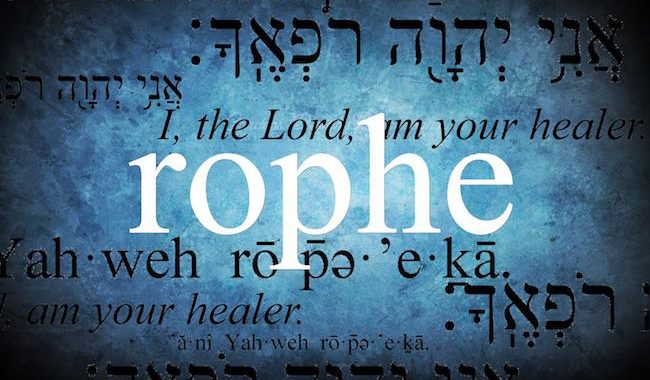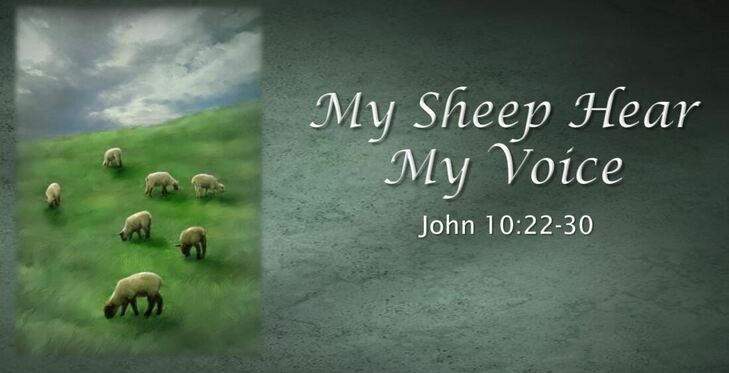Are there situations in life that seem beyond your control?
Are there problems in life for which you are searching for a solution?
We all face problems and challenging situations in life, however, the way that we find solutions to these problems and challenges varies from person to person. In this week’s Torah Portion we read a simple story about a tree by which God taught the Israelites to come to Him and listen to Him every day, especially when life is beyond our control.
Walking Through The Sea
After 430 years of being foreigners and slaves in Egypt (Ex. 12:40-41), the twelve sons of Israel had grown into a multitude of people and were now the nation of Israel. The LORD used His servant Moses to bring the nation of Israel out of Egypt, through the sea, and along the journey to the Promised Land. Pharaoh and his army chased after the people of Israel and followed them through the sea but again found themselves to be fighting against God who destroyed Pharaoh and his army in that same sea.
With the threat of Egypt behind them, the people of Israel sang a song to the LORD and exalted His great name (Ex. 15:1-18). Miriam also led the women in singing and dancing before the LORD:
Miriam the prophetess, Aaron’s sister, took the tambourine in her hand, and all the women went out after her with tambourines and with dancing. And Miriam answered them, “Sing to the LORD, for He is highly exalted; The horse and his rider He has hurled into the sea.” – Ex. 15:20-21
It was a time of extreme joy and celebration for all of the good things that God had done for His people.
Transition From Egypt to The Promised Land
The people of Israel were on a new journey with the LORD and they would soon find out that they needed to adjust to a whole new life: physically, emotionally, and spiritually. After being in one land for 430 years as a people, they were now on a journey to a new land and they would confront many new challenges along the journey. Their service to Pharaoh had ended and they now served the King of heaven and earth.
The journey of Israel from Egypt to the Promised Land contains many parallels and life lessons for believers in Yeshua today. When we come to faith in Yeshua we are choosing to leave the former world behind in order to walk with Yeshua day by day to the spiritual Promised Land, eternity with Him. The initial joy of this new journey with Yeshua is exciting and euphoric but there is also the reality of daily choices which must be made along the journey with Him. The new freedom of life in Yeshua carries with it responsibility to make decisions as we face various problems and challenges. In this week’s Torah Portion there is a very practical example of how to successfully navigate the various challenges we may face along the journey of new life in Yeshua.
The Bitter Waters
It had been three days since the Israelites left Egypt. The people had gone from the waters of the Red Sea to another body of water in the desert, however, the waters in the desert were undrinkable. We then read how Moses and the Israelites found a solution to this problem:
Then Moses led Israel from the Red Sea, and they went out into the wilderness of Shur; and they went three days in the wilderness and found no water. When they came to Marah, they could not drink the waters of Marah, because they were bitter; for that reason it was named Marah. So the people grumbled at Moses, saying, “What are we to drink?” Then he cried out to the LORD, and the LORD showed him a tree; and he threw it into the waters, and the waters became sweet. – Ex. 15:22-25a
The name of the place where they had arrived was called Marah. It was so named because of the conditions of the water: מרה – Marah, which simply means bitter. The people turned to Moses for water to drink and Moses cried out to the LORD.
The LORD instructed Moses to throw a tree into the water and they became sweet. In the text above we read “…and the LORD showed him a tree…” but this is not an accurate translation of the Hebrew. The Hebrew word for the phrase “showed him” is ויורהו – VaYorehu, which is best translated as “and He instructed him”or “and He taught him”. Moses cried out to the LORD regarding the bitter waters and the LORD instructed him to throw the tree into the waters which turned the bitter waters sweet.
The Tree Of Sweet Waters
How big was the tree? What kind of tree was it? Did the tree have healing leaves on it? We are not given any other details in this account. The text simply tells us that the LORD instructed Moses regarding the עץ – Etz – the tree, and Moses threw the tree into the waters which made the waters sweet. The type and size of the tree were not important. Obedience to the instruction and voice of the LORD was the solution to the problem.
The bitter waters in the desert were not a surprise to the LORD, in fact, the LORD used the problem of the bitter waters and the people’s thirst as a means to instruct them, as we read in the continuation of the text:
There He made for them a statute and regulation, and there He tested them. And He said, “If you will listen carefully to the voice of the LORD your God, and do what is right in His sight, and listen to His commandments, and keep all His statutes, I will put none of the diseases on you which I have put on the Egyptians; for I, the LORD, am your healer.” – Ex. 15:25b-26
The LORD wanted the best for His people and told them that if they would listen and follow His instructions, He would protect them from the plagues that He put on the Egyptians and be their Healer – יהוה רופאך – Adonai Rophecha.
The LORD gave His people a statute that was comprehensive in relation to whole-heartily seeking after Him including the following directives:
-
- Listen carefully to the voice of the LORD
- Do what is right in His eyes
- Give ear to His commandments
- Keep His statutes
The LORD promised that if they would do their part, He in turn would be faithful to do His part and keep them from the plagues of the Egyptians, for He is יהוה רופאך – Adonai Rophecha – The LORD your healer! Each of the four directives listed above could be expounded on in great detail, however, I only want to focus on the first one: “If you will listen carefully to the voice of the LORD your God,...”

Listen To His Voice
Many decisions in life are based on wisdom and others can be clearly made on the basis of God’s holy standard of what is right and wrong as detailed in the Bible, however, there are also other challenges in life that are outside of the normal framework of our ability to apply wisdom or a chapter and verse from the holy Scriptures. It is in these situations that we need to hear the voice of the LORD. Whenever we are faced with decisions or challenges beyond our ability we need to go to the One who is able to do the impossible, the LORD Himself!
In general, we as humans prefer straight forward methods and ways of handling problems and challenges in life. This is where religion tries to provide answers to all of life’s situations, however, there are some things about which God simply wants us to seek Him and listen for His voice. God instructed the children of Israel to listen carefully for His voice while obeying His commandments and the same applies to us today.
An Example From The Life of Saul
Seeking to find the voice of the LORD in the midst of challenging circumstances is not easy. It takes time and effort to cease from our busy schedules and quiet our hearts to actually hear His voice. I was recently reading through the book of First Samuel and I was reminded of how King Saul struggled with taking time to stop and listen for the voice of the LORD.
At a time when the Philistines were attacking the people of Israel, King Saul and his army were camped at Gibeah. There was a stirring in the camp of the Philistines and Saul was not sure if he and his army should attack or not at that time. Saul then decided to seek the LORD and hear His voice concerning this matter, as we read in First Samuel chapter fourteen:
Then Saul said to Ahijah, “Bring the ark of God here.” For the ark of God was at that time with the sons of Israel. While Saul talked to the priest, the commotion in the camp of the Philistines continued and increased; so Saul said to the priest, “Withdraw your hand.” Then Saul and all the people who were with him rallied and came to the battle; and behold, every man’s sword was against his fellow, and there was very great confusion. – 1 Samuel 14:18-20
Ahijah was a priest who had come with the ark of the covenant to the battle and he was wearing the priestly ephod (1 Samuel 14:3).
It is clear from the context of the above verses that Saul had commanded that Ahijah the priest come before him in order to inquire of the LORD as to what he and the army should do by means of the Urim and Thummim located in the breastpiece of the ephod worn by the priest, which was in agreement to the instruction in the Torah:
Moreover, he shall stand before Eleazar the priest, who shall inquire for him by the judgment of the Urim before the LORD. At his command they shall go out, and at his command they shall come in, both he and all the sons of Israel with him, all the congregation. – Numbers 27:21
The LORD would speak through the priest by means of the Urim and Thummim in order to direct and lead His people.
Listening Takes Time
Unfortunately, at the moment that Saul had called Ahijah to him in order to seek the LORD on behalf of himself and the army of Israel, the Philistines again began to stir and Saul reacted. Instead of waiting to hear from the LORD, Saul commanded Ahijah the priest to withdraw his hand from the Urim and Thummim located in the breastpiece and Saul made his own judgment of what to do next. Saul rallied his troops to the battle and the result was “…very great confusion.” (1 Samuel 14:20)
Again and again in the life of Saul we see a similar pattern of his not taking the time to seek the LORD or simply not listening to the voice of the LORD. Seeking and listening to the voice of the LORD takes time and ears to hear. When we refuse to take the time necessary to listen for the voice of the LORD we will meet the same fate as Saul which was characterized by very great confusion.

A Lesson From A Tree
The situation of the bitter waters that Moses and the Israelites met in the desert reminds us to seek the LORD and listen for His voice when we face problems and challenges in life beyond our control. Moses called out to the LORD and the LORD answered him by instructing him to throw a tree into the waters. The bitter waters were then made sweet by means of a tree. The solution to the problem was not the tree itself but obedience to the voice of the LORD in that situation. Are you seeking the LORD and listening for His voice today?
Shabbat Shalom!
If you enjoyed reading this article, share it today with friends! We also invite you to sign up for our weekly Torah Portion commentary on the sidebar to the right.
Help keep our weekly commentaries free and available to all. Click here to donate today:
*All Scripture take from NASB Copyright © 1960, 1962, 1963, 1968, 1971, 1972, 1973, 1975, 1977, 1995 by The Lockman Foundation
**The Hebrew name “Yeshua” is used in the biblical quotations in place of the English name “Jesus” to give emphasis to the meaning of this name, salvation. The word “Messiah” is also used in place of the word “Christ” to bring clarity to the office of Yeshua.


